The relief effort after Hurricane Helene is powered by private citizens, and volunteers have discovered that it’s better to ask forgiveness than permission.
Eric Boehm | 10.23.2024 2:00 PM
Share on FacebookShare on XShare on RedditShare by emailPrint friendly versionCopy page URL
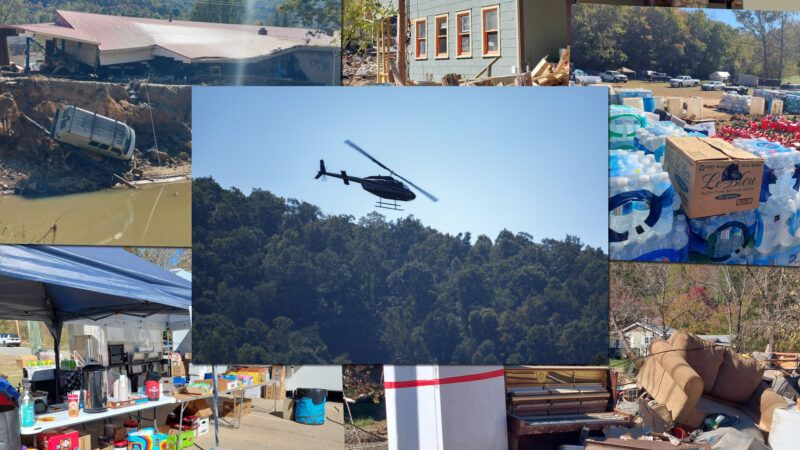
(Photos by Eric Boehm, Max Correa/Polaris/Newscom)
At a Harley-Davidson dealership in Appalachia, one expects to encounter the occasional roar of some serious horsepower.
Less expected is the sight that has accompanied that sound in Swannanoa, North Carolina, for the past three weeks: helicopters, many of them privately owned and operated, launching and landing from a makeshift helipad in the backyard of the local hog shop. According to the men who organized this private relief effort in the wake of devastating floods unleashed by the remnants of Hurricane Helene, more than a million pounds of goods—food, heavy equipment to clear roads, medical gear, blankets, heaters, tents, you name it—have been flown from here to dots all over the map of western North Carolina.
“We’re not the government, and we’re here to help,” says one of the two men standing by the makeshift gate—a pair of orange traffic drums—that controls access to and from the Harley-Davidson dealership’s parking lot and the piles of donated items neatly organized within it. “We can do it quicker, we can do it efficiently, and we genuinely just want to help our neighbors.” He identifies himself only by his first name and later asks that I don’t use even that. It’s an understandable request, as what he’s doing is probably not, strictly speaking, totally legal.
There are a lot of those blurry lines in western North Carolina right now, and thankfully the police are either too busy or too grateful for the help to care much about it. An ethos of do-it-yourself-ism, plenty of cooperation, and a healthy amount of “ask forgiveness rather than permission” is on display everywhere in Asheville and its surroundings.
Every bit of it is needed. The flooding caused by Helene is catastrophic, as I witnessed firsthand during a two-day trip to the area last week. Pictures and videos on social media and in the news do not fully capture the scope of this disaster—and the digging out, picking up, and rebuilding is a process far too large and too important to be left to the government.
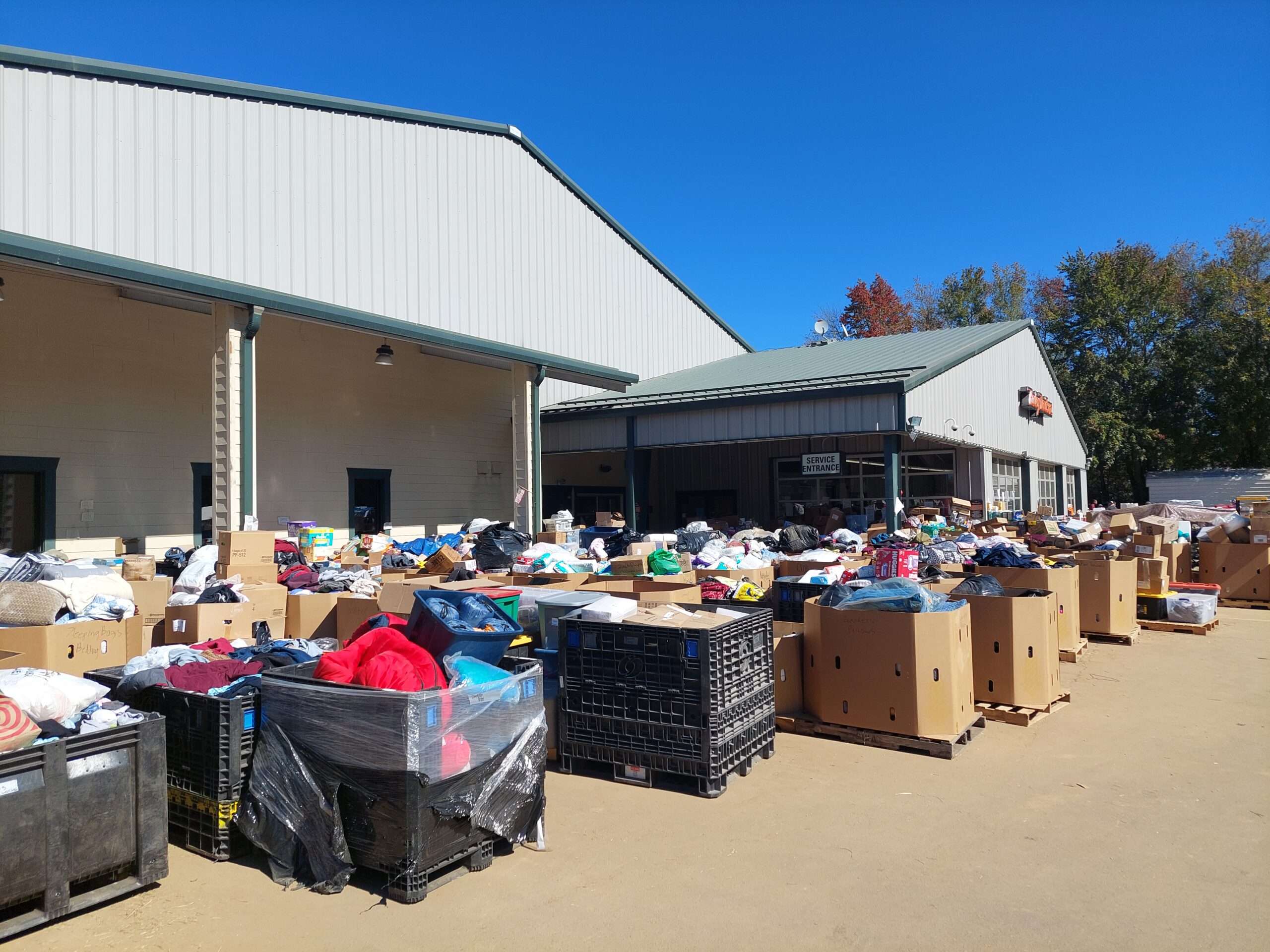
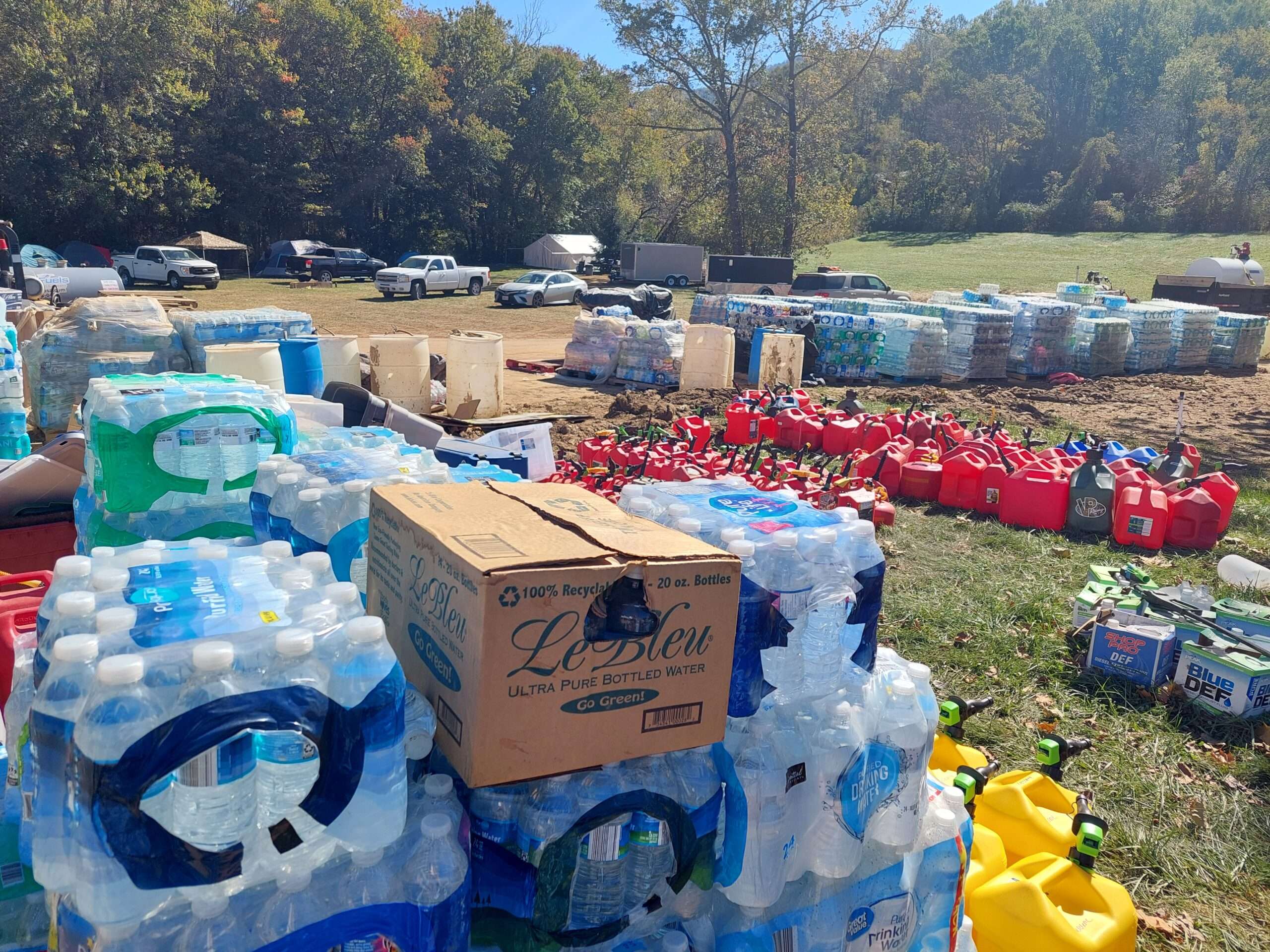
“It’s been miraculous.”
The man largely responsible for organizing the Harley-Davidson airlift is a burly, bearded former Green Beret who goes by Adam Smith—yes, really.
Smith was on a work trip to Texas on September 27, when the remnants of Helene stormed into the southern Appalachians and dumped over 20 inches of rain onto the mountains. After losing contact with his ex-wife and 3-year-old daughter, Smith drove through the night to get back to the Asheville area. What greeted him was a nightmare: Roads to the mountain hamlet where the two lived were completely impassable, thanks to downed trees and power lines, mudslides, and collapsed bridges. After two days of trying to get to them, and still no contact, Smith feared the worst.
“They’re about eight miles that way,” he gestures toward the mountain ridge that runs south of Swannanoa, an area where some of the worst flooding in the area occurred. “I just assumed they were dead at that point.”
Former Green Berets don’t give up easily. Through a series of connections, Smith got in touch with someone who owned a small recreational helicopter. On the morning of September 29, he hitched a ride on his last hope.
He found them, alive and well. Tears well up in his eyes when I ask him about that moment. “We landed the helicopter and I was getting out of the door and I saw them walk from the tree line,” he says. “And they were perfect.”
They weren’t the only ones who needed help. Smith’s day job these days is running Savage Freedoms Defense, a training and consulting firm, where he draws on his military experience to help prepare people to take care of themselves and their loved ones under difficult circumstances. Through that business and via connections with other retired special operations veterans in the area, Smith launched what’s been called a redneck air force to get supplies to flooded mountain towns. Smith owns motorcycles and knows people who work at the Harley-Davidson dealership. He also knew it would be a perfect spot for the group’s ad hoc operations: a big parking lot with a single entrance, and a large field out back where the helicopters have been landing.
By the end of the first week, they had three civilian helicopters running missions, and it has only grown from there. In addition to food and supplies, the group has carried Starlink devices into places where internet and cell connections were down.
Bringing together veterans and others with experience in emergency response meant that the group had people who knew “the different systems and procedures and process, and understand the red tape and also understanding the people on the ground,” says Austin Holmes, who is handling communications for Savage Freedoms.
The bootstrapped operation has gained notoriety in the region—and a visit from former President Donald Trump on Monday of this week—as well as the respect of the National Guard, which has started piggybacking on some of Savage Freedom’s supply runs. When I visited on Friday, a truckload of National Guardsmen were picking up a free lunch—smoked turkey, with peas and carrots—being distributed by volunteers in the parking lot.
Even the bureaucrats at the Federal Aviation Administration have had to get out of the way: The field behind the Harley-Davidson dealership was granted an emergency designation as a legitimate landing zone.
Smith says this is meant to be a “collaborative” operation, rather than a fully private one. But there are no uniformed cops controlling access, just Travis and his buddy, who declines to speak with me. The National Guardsmen who are here seem to be waiting for orders rather than giving them. What’s happening here resembles a militia operation, in the best and truest sense of the term.
“Now that we’re three weeks into it, we’ve had no less than 60 people here. At the height, we had 130 people here every day,” Smith says. “It just, it’s been miraculous.”
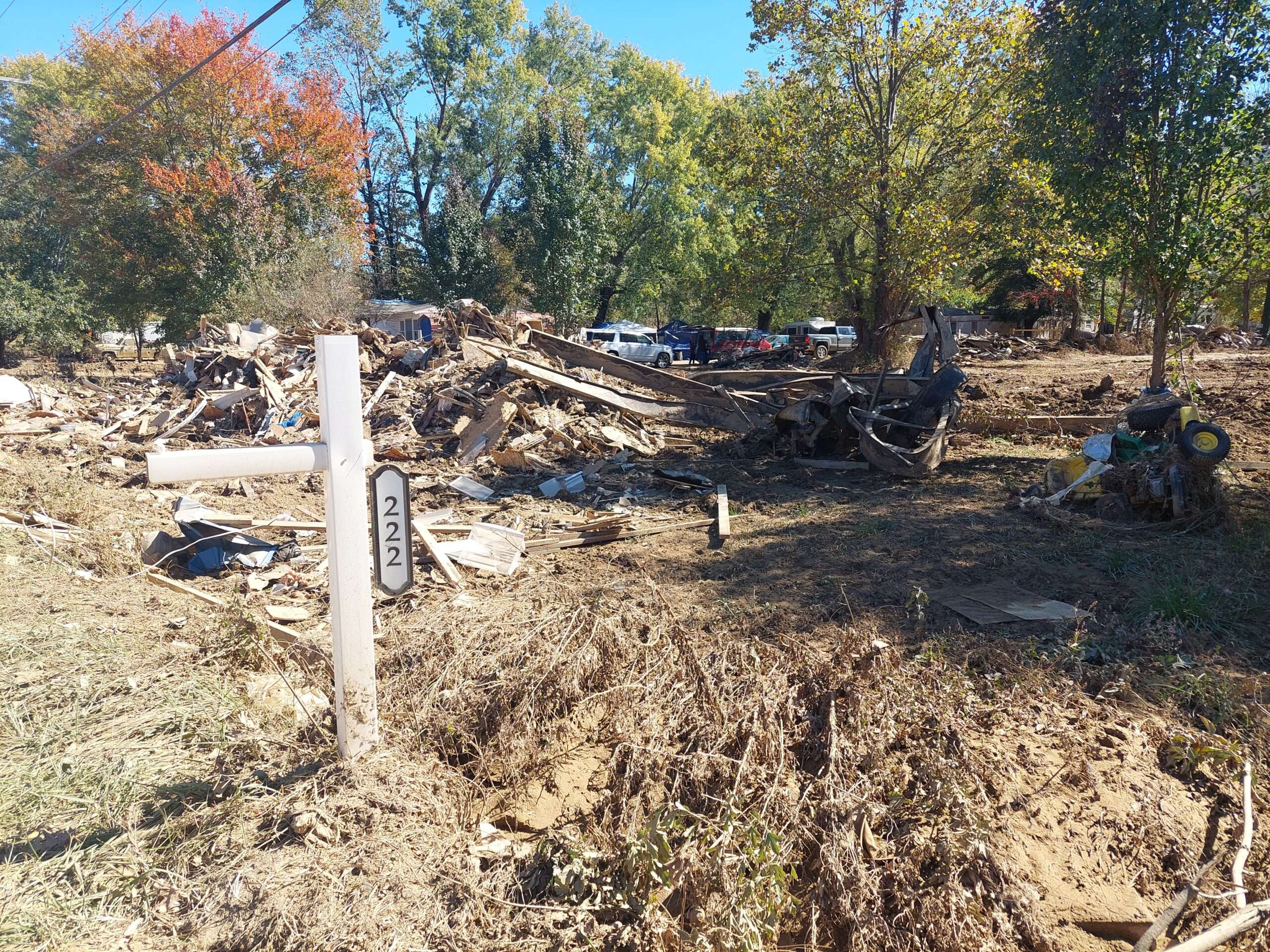
Who will build the roads…and the hot showers?
Any doubts about the necessity of those helicopters disappear as I wind my way into the mountains southeast of Asheville. It’s been three weeks, but U.S. Route 74—the main road in this area—is passable only in the strictest sense of the word. Trees have been cut and the mudslides partially cleared, but power lines are down everywhere. In some places, it looks like every third tree was felled by the storm. In others, whole mountainsides came loose and tumbled down.
Where the road wasn’t blocked with debris from above, it was washed out from below. After crossing the top of Strawberry Gap, Route 74 follows Hickory Creek as it spills down the side of the eastern continental divide toward the Broad River. In places where floodwaters from the storm came into conflict with anything man-made, the creek won. The road is open now thanks to piles of gravel and steel plates filling some of the washed-out sections. Hastily constructed culverts have replaced destroyed bridges in so many places that I lost count.
“I’ve never dealt with anything like this, and I hope I never do again,” says Jay Alley, who has been the chief at the volunteer fire department in Gerton since 1994. “We had pretty much no roads, no bridges, no power poles, nothing. Had a lot of homes destroyed.”
Despite the damage, he’s proud to report that the town didn’t lose a single life in the flooding. “We actually gained one,” he says. “We had a baby born in the middle of all this, so that was really great.” The stories that kid will be told.
Other places have not been so lucky. As of October 23, there have been 96 deaths attributed to Helene’s impact on North Carolina—seven of them in Henderson County, where the town of Bat Cave (just down the road from Gerton) was nearly wiped out.
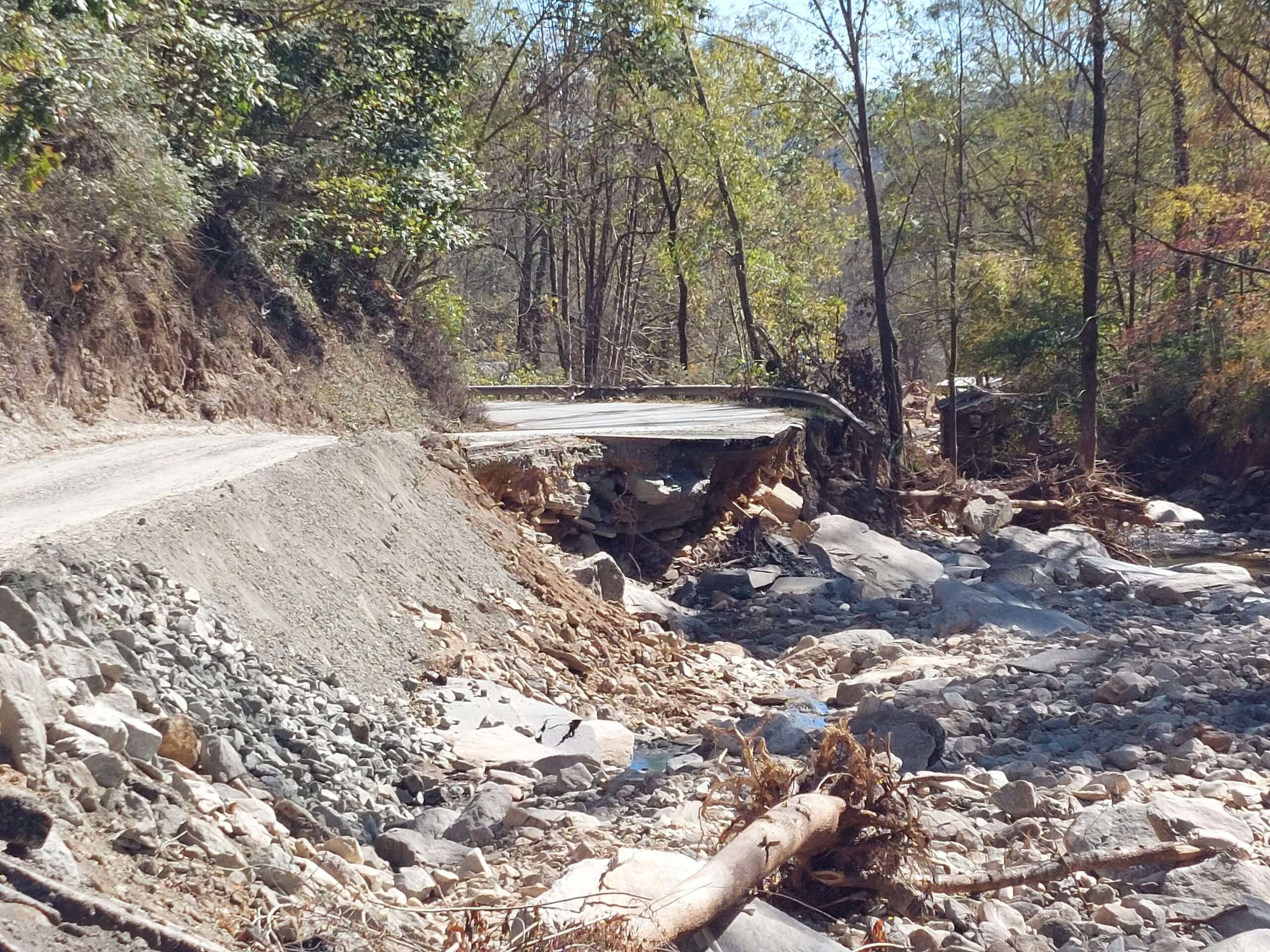
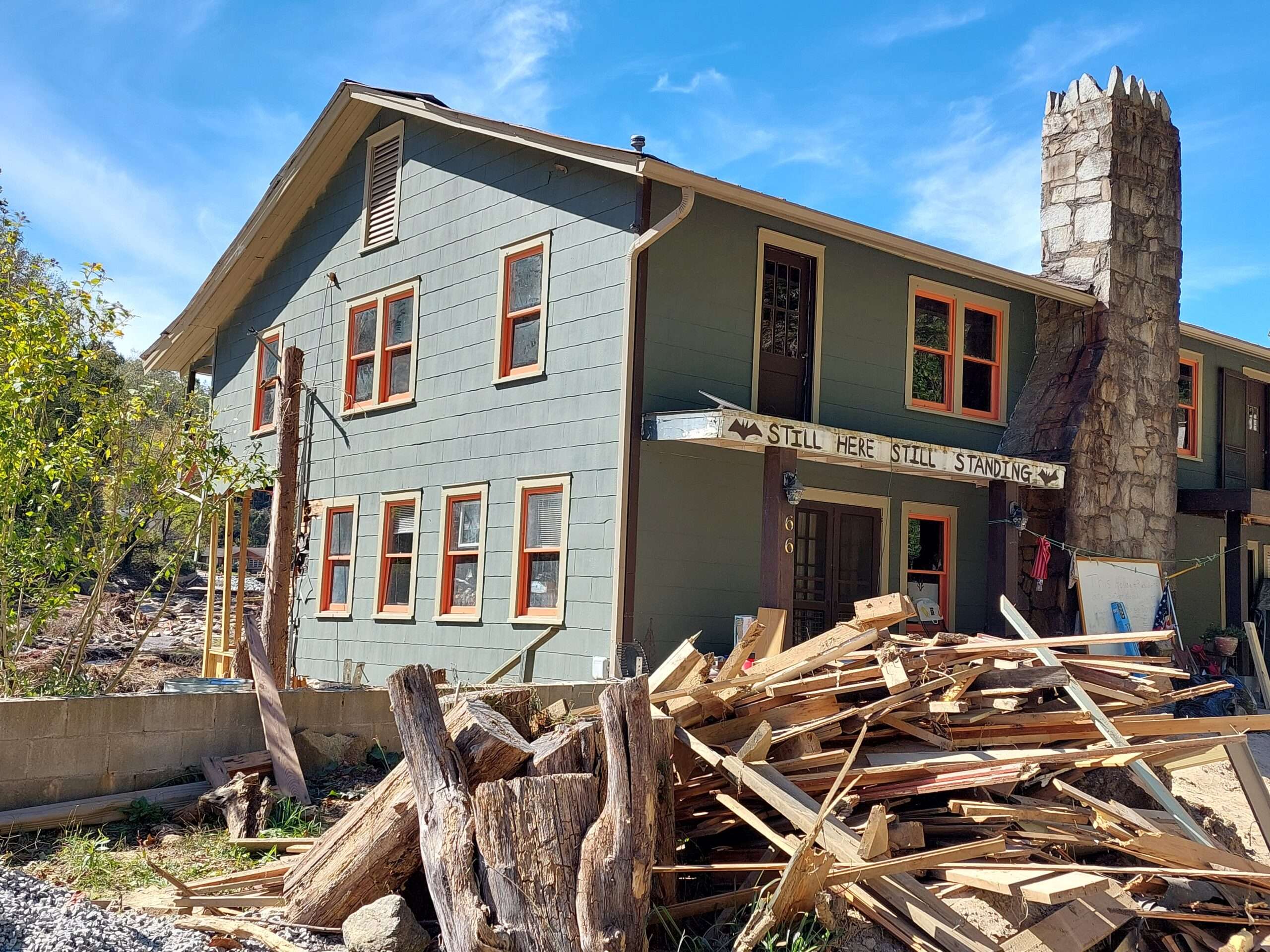
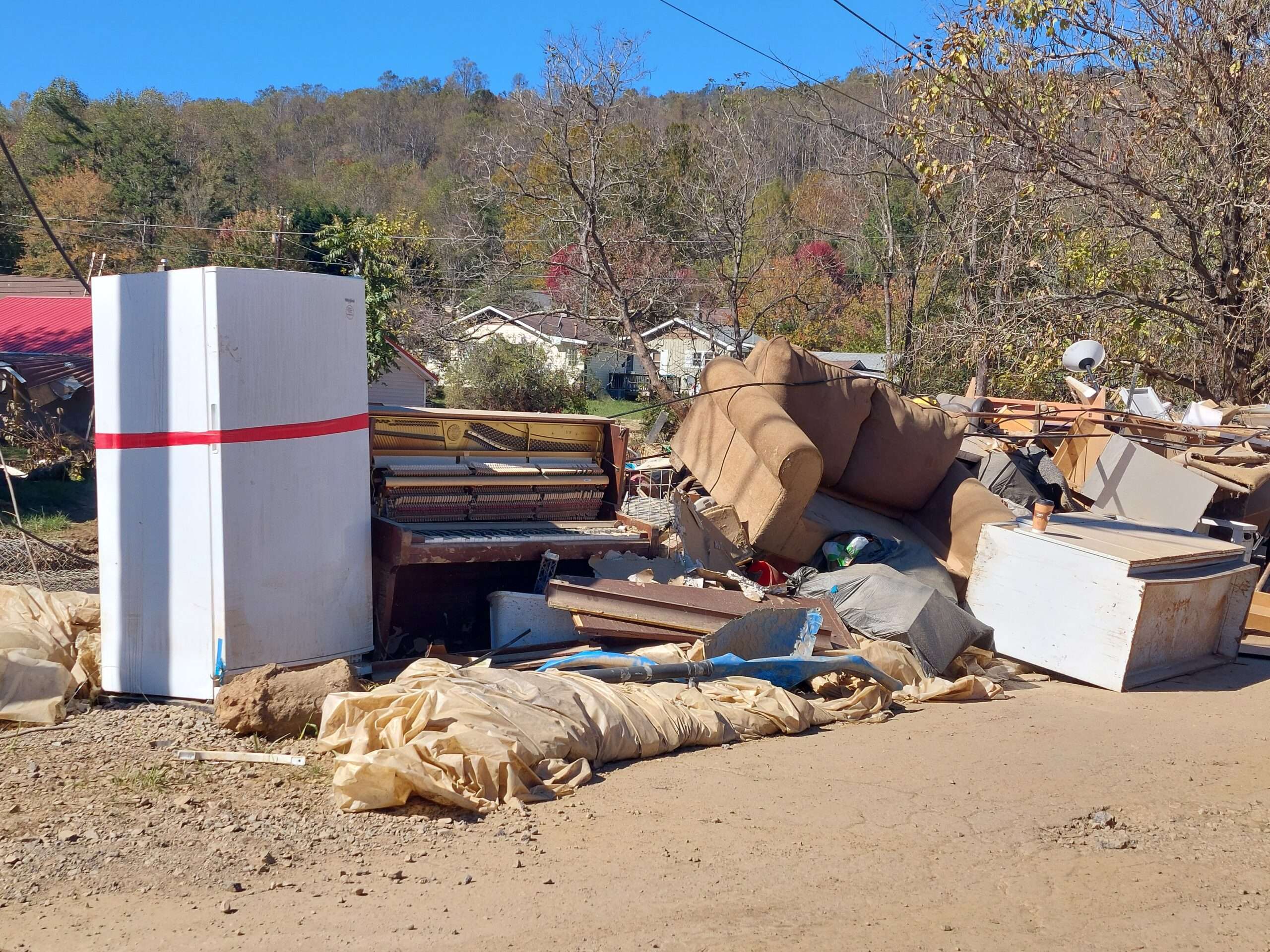
Donations and supplies that poured into Gerton overflow onto the driveway outside the firehouse: propane heaters, sleeping bags, warm clothes, and more. A trailer with a massive propane-fueled rotisserie oven—one that’s normally used to cook turkeys for church dinners, says Debbie, who offers me a chili dog while I wait to chat with Alley—has been churning out hundreds of hot meals every day for first responders and residents alike.
“It speaks to the generosity of the people who have come to help us,” says Alley. “We had lots of faith-based organizations and volunteers who came in and they rebuilt roads and they rebuilt things for everyone in the community.”
Wait, even the roads?
“We’ve had private organizations from Ohio, Kentucky, Alabama, just all over the country have been here rebuilding our roads,” Alley says. “I don’t know how they got here, but we said, ‘Hey, go fix this problem,’ and they went and fixed it.”
Groups with names like God’s Pit Crew have poured into North Carolina in the weeks since Helene, armed with the power of prayer, chain saws, and front-end loaders. In a church parking lot near Mills River, I meet a group of volunteers from Pennsylvania as they’re packing up a trailer to head home after a week of cutting tree limbs and clearing debris. In two days of driving around, I see more “Texas Strong” decals on trucks and trailers than Federal Emergency Management Agency (FEMA) logos.
The Cajun Navy, a Louisiana-based disaster response team that made headlines in the aftermath of Hurricane Katrina, is here too. At an outpost the group established in the parking lot of a Dollar General in Black Mountain, Chris Woodard is serving corn bread and chili. He’ll be here for a week, and then other volunteers will arrive to take his place. World Central Kitchen, the relief group founded by Chef José Andrés, has set up a massive outdoor kitchen in downtown Asheville, where the public water supply was only partially restored this past Friday: For the first time since the storm, toilets could be flushed and residents could take showers, but the water was not yet safe for drinking or cooking.
Outside of the more well-established relief efforts, local networks of volunteers have sprung up around churches, firehouses, and other gathering points. Many rely on the ingenuity of the people running them, or at least a willingness to think outside the box. At BattleCat Coffee in East Asheville, staff are hauling tanks of water from a nearby World Central Kitchen distribution point, and using a jury-rigged pump system to feed it into the expresso machine.
The community pool in Black Mountain has become another of the many ad hoc relief centers in the region: Piles of donated clothes fill the locker rooms, hot food is being grilled on a trailer in the parking lot, and volunteers who traveled from Maryland and Indiana are crashing in the swim team’s clubhouse. This one has something that many other do not: hot showers.
“We had an idea and we just went with it,” says Heather Hensley, who works as the pool’s assistant manager during the summer months. A few days after the flood took out Black Mountain’s power and water supply, Hensley and her colleagues realized that the pool could be used to filter the available water—which was unsanitary due to broken pipes—to make it usable. A generator got the filter up and running. Then, another problem: The October sun wasn’t warm enough to heat the solar shower bags someone provided. So she called a friend who owns a propane-powered turkey fryer.
Like so many of these off-the-cuff setups, it’s the sort of thing that almost certainly violates at least a few of the town’s ordinances. Hensley says she’s found it’s better to ask forgiveness than permission when attending to flood victims’ needs.
That approach has turned Hensley into something of a field marshal. Our conversation is interrupted at one point by a volunteer who is in contact with some members of the 101st Airborne Division, which has been deployed to the region. The other woman asks Hensley to decide what task the troops* should be given: Are they needed here to unload a truck of donations scheduled to arrive shortly, or focus on clean-up efforts down the road?
“Did you ever think you’d be giving orders to the 101st Airborne?” I ask her after the volunteer steps away to deliver the message (the troops get clean-up duty, as Hensley has enough volunteers here).
“I’m not,” she laughs, “I’m not giving orders.”
But, yeah, she is.
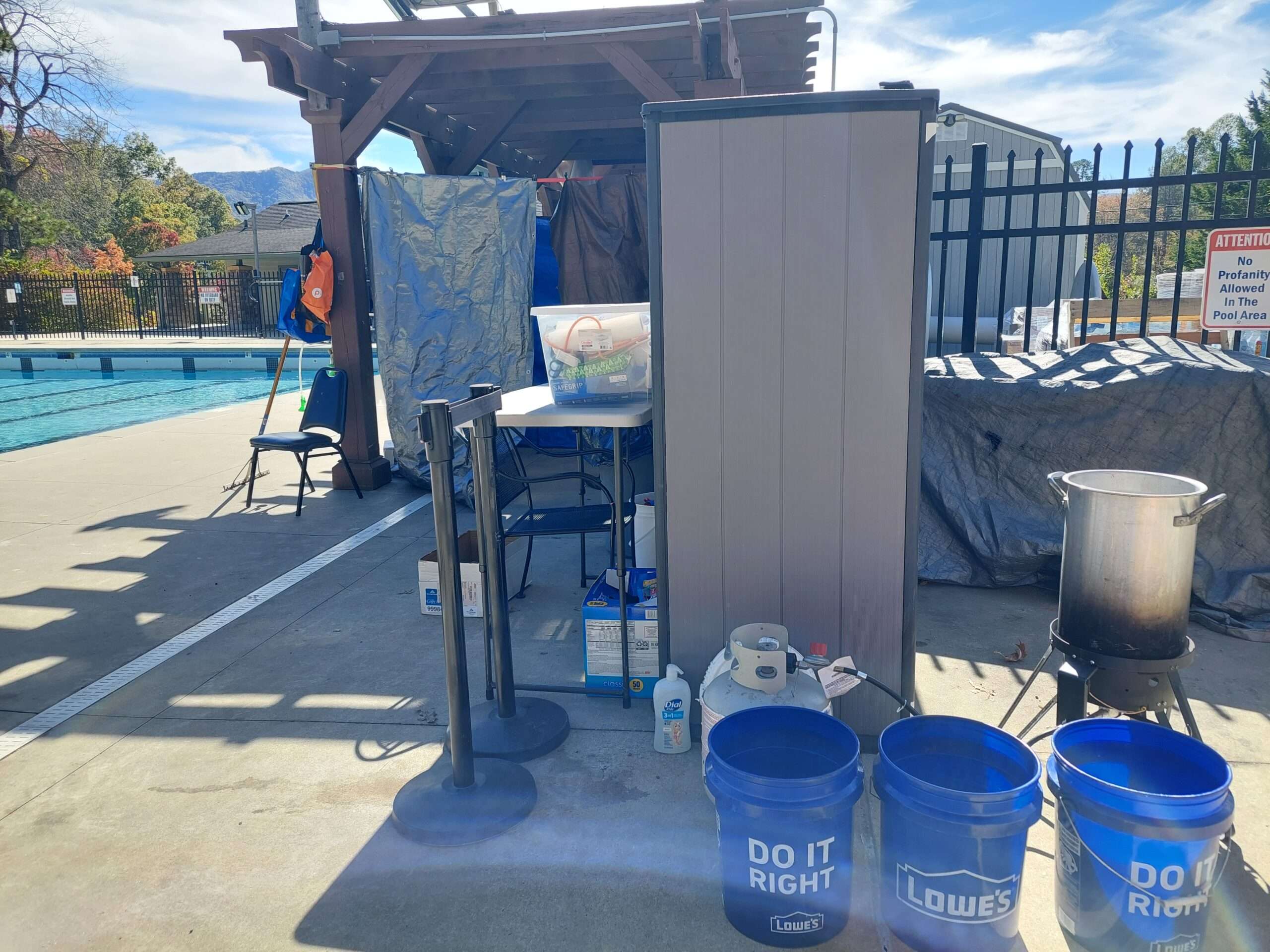
The road from Black Mountain back to Swannanoa is lined with piles of debris—the guts of homes that were swamped when the Swannanoa River overflowed its banks. The football bleachers from the Asheville Christian Academy have been dragged across the field and crushed like an empty beer can. Mud-logged cars and trucks have been strewn in fields and flushed down the riverbank.
Amid the destruction, the Valley Hope Church has become a hub of activity. Inside, Amy Berry oversees the stockpiles of donated clothes, bedding, furniture, and food that have poured in from as far away as Canada and Connecticut, and now fill the church’s rec center.
“It just has been amazing to see the best of humanity,” Berry says. “We can always talk about the worst of it, but I have seen the best of it, I really have.”
On the church’s front lawn, Taylor and Frances Montgomery are serving a full hot dinner of roasted chicken, Tex-Mex soup, parmesan pasta, and vegetables to dozens of families from the area. Kids are playing tag in the playground. The buzz of generators and an approaching autumn chill hang in the air.
“We’ve seen tears over salad,” says Taylor, who has been a chef for more than two decades. “My whole career, I concentrate on learning the next culinary discipline or new trend or how to develop flavor. And not one of those plates has been more important or impactful than the plate I’m handing to a person on the other side of this slide.”
In more normal times, Taylor and Frances run the Montgomery Sky Farm and an associated animal rescue center in Leicester, about 10 miles northwest of Asheville. If Smith and his brand of redneck mountain tough guy represent one-half of the western North Carolina cliché, then the Montgomeries are the yin to that yang: crunchy, flannel-wearing folks who talk about “scratch” cooking and run a carefully curated Instagram page. They’re also the type who depend on the area’s agritourism, which usually peaks in the autumn.
Not this year. With their farm partially flooded by the storm and the tourists staying away, Taylor and Frances hit the road with a mobile kitchen trailer and food that’s been provided by fundraising on social media. For two weeks, they’ve been feeding desperate people in stricken communities across the Black Mountains. They’re hoping to keep this up through Thanksgiving, and maybe longer if the donations keep flowing.
“We figured we could sit and cry,” says Frances, “or we could be proactive.”
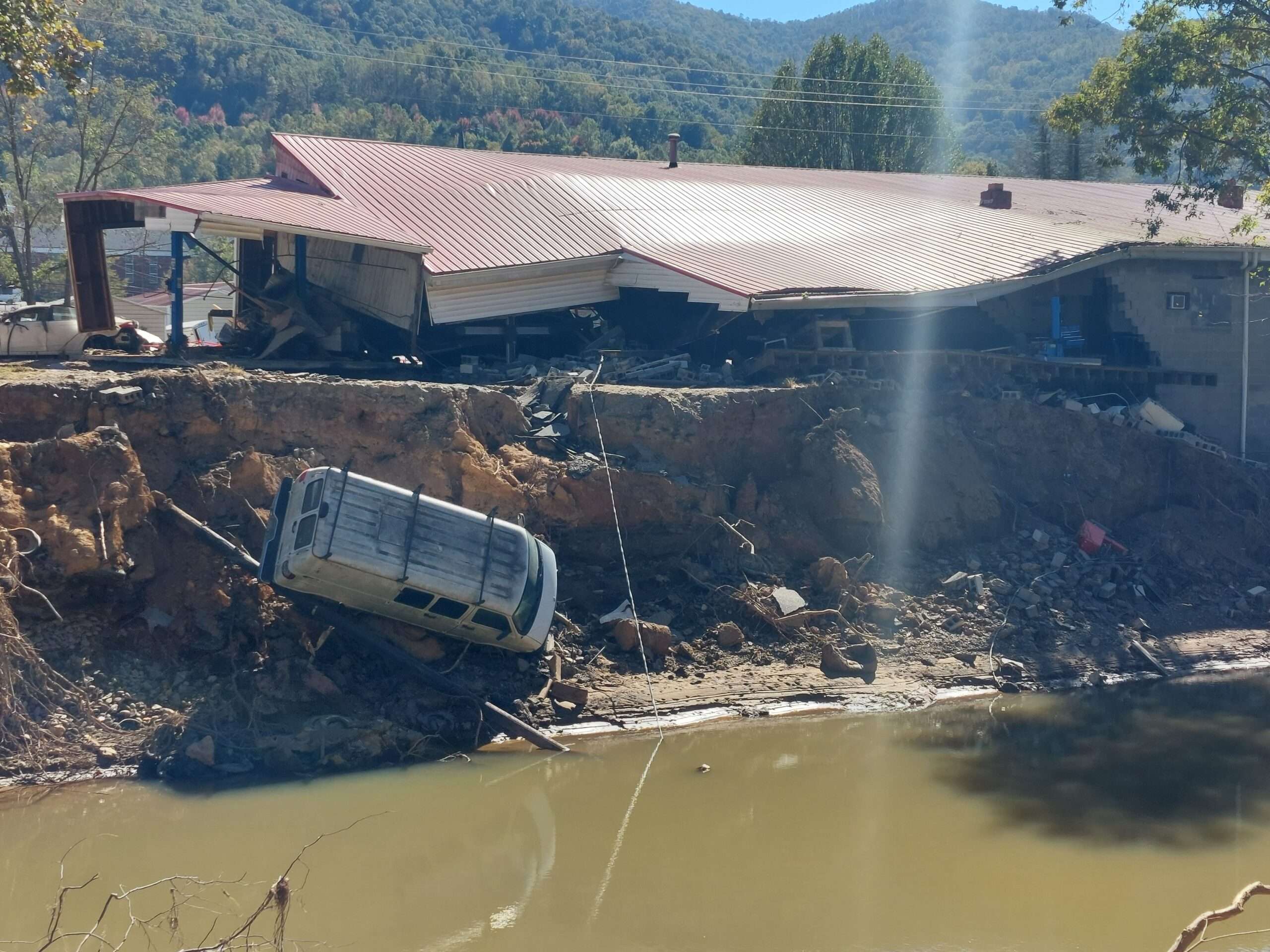
“We’re the ones seeing our friends float away”
The question that will be asked in the wake of Helene is whether FEMA’s response was sufficient. For what it’s worth, President Joe Biden has already delivered his verdict—”you’re doing a heckuva job,” Biden told FEMA Director Deanne Criswell on October 9 (an irony-free callback to then-President George W. Bush’s questionable praise for then–FEMA chief Michael Brown after Hurricane Katrina).
Many in western North Carolina will have a different view, no doubt. Threats of violence against FEMA personnel earlier this month caused a brief suspension of federal relief efforts in Rutherford County, where the town of Chimney Rock was wiped off the map by the same floodwaters that devastated Gerton and Bat Cave. The man responsible for those threats was quickly arrested, and the recovery efforts resumed.
Threats like that are not helping anyone, obviously, and the people engaged in the actual work on the ground—from first responders like Alley to the redneck airforce leaders like Smith—are quick to dismiss that incident as an outlier. It’s no secret that FEMA’s efforts are often slow, incompetent, and ineffective, but the aid is accepted for what it is. (And it hasn’t been completely insignificant: FEMA says it has shipped over 9.3 million meals, more than 11.2 million liters of water, 150 generators, and more than 260,000 tarps to western North Carolina and eastern Tennessee.)
But the people here also know that FEMA can’t be trusted with the really important tasks.
“If we weren’t here, there wouldn’t be people getting warm clothes, because FEMA doesn’t give out clothes,” says Bob Wright, who is running another of these roadside donation distribution centers, this one in a shopping center parking lot in Swannonoa. Wright works for a local nonprofit, Hearts and Hands, that is distributing heaters, canned food, blankets, and other items alongside plastic bins containing sweaters and jeans in various sizes.
“They give you $750 to go buy some,” he adds, gesturing at the nearby Ingles grocery store that’s been closed due to damage from the flood as if to underline his point.
In any disaster, a federal response is bound to be insufficient. There will always be the need for people in the affected communities—first responders and other public officials, yes, but also ad hoc volunteer efforts and charity.
Not everyone involved in the recovery is a former Green Beret. Not everyone knows how to fly a helicopter or operate a front-end loader. That’s fine. Surviving the first three weeks after Helene required the assistance of farmers and pool managers, of breweries and barbeques, of chefs and fishmongers from the next state—and untold contributions from the wallets of ordinary Americans and the corporate accounts of some of the country’s biggest businesses. The overflowing donations, the pallets of bottled water, the fresh food, and the helicopters, too. They all represent the wealth of America, and not in some metaphorical sense but in a very literal one.
“I do not have time to defend what the government is doing. They are doing a lot of hard, dangerous work,” says Berry. But grassroots organizations like her church have a vital role to play. “We can respond a lot faster. We’re a lot smaller, but they are our neighbors. It is our home. We are going to respond faster because we are the ones standing in the water, in the mud. We are the ones seeing our friends float away.”
Down the road, at the Harley-Davidson dealership, Smith and his collaborators are working on a plan to ferry huge tanks of clean water into the mountain hollows that might not have regular service restored for months.
“This is a long-term effort. And we’ve given our word to the community that we will stay and support them as long as it takes for them to get back on their feet,” says Smith. “The mission is to get the local economy up and running again, make sure the community and residents of western North Carolina are taken care of, and to remind them on a regular basis that they haven’t been forgotten.”
CORRECTION: This piece incorrectly described members of the 101st Airborne, which is a division of the U.S. Army.




